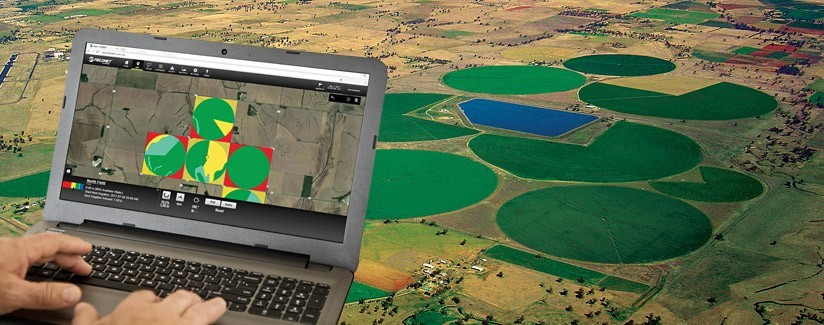Zimmatic Blog
Positive Impacts of the Agricultural Improvement Act on American Growers
Dec 20, 2018

President Trump today signed into law the Agricultural Improvement Act of 2018, or farm bill, which will provide continued certainty to growers in Nebraska and across the United States, while advancing conservation and boosting rural economies.
Lindsay Corporation credits the collaboration among the Senate Agriculture Committee Chairman Pat Roberts (R-KS), Senate Agriculture Committee Ranking Member Debbie Stabenow (D-MI), House Agriculture Chairman Mike Conaway (R-TX) and House Agriculture Committee Ranking Member Collin Peterson (D-MN). Additionally, Sen. Deb Fischer (R-NE) and Rep. Don Bacon (R-NE), who serve on the Agriculture Committees, worked tirelessly on behalf of Nebraska growers.
Lindsay made a corporate commitment to help growers save more than 700 billion gallons of water and more than one billion kilowatt hours of energy by the year 2022. The new farm bill will help advance this goal, while providing predictability for growers and advancing the economies of our rural communities.
The farm bill’s increased funding for the Environmental Quality Incentives Program (EQIP) and its commitment to efficient irrigation will enable growers to continue improving yields, while achieving significant water and energy savings. The farm bill provides for EQIP payments to growers for irrigation efficiency improvements including water conservation scheduling, water distribution efficiency, and soil moisture monitoring.
The accompanying report goes on to recognize the benefits of remote telemetry systems such as Lindsay’s FieldNET® and FieldNET Advisor®. The report states:
Remote telemetry data systems, as used for irrigation scheduling, combine the use of field, weather, crop and soil data, which ensures that the precise amount of water is applied to crops to promote water and energy efficiency while also increasing crop yields. The Managers encourage USDA to incorporate remote telemetry data systems as a best management practice under the Environmental Quality Incentives Program.
In recently conducted field studies, Lindsay researchers found that remote telemetry with cloud-based irrigation scheduling enabled growers to realize:
- A 3 percent increase in corn yield (driving profit of $25 per acre);
- A 17 percent reduction in water usage (saving more than 9.25 million gallons on a 130-acre field);
- A $10/acre reduction in energy costs; and
- A 75 percent reduction in time spent going back and forth to the fields (another $5/acre saved).
The farm bill’s funding for rural broadband infrastructure will help growers across the country access valuable Internet-based tools. In November 2017, Lindsay President and CEO Tim Hassinger called on Congress to increase access to rural broadband. In testimony before the Senate Committee on Commerce, Science and Transportation, Hassinger said, “The Internet fuels the innovative, advanced technology that will help America’s farmers meet the food, fuel and fiber needs of our rapidly growing global population.” He went on to explain, “At Lindsay Corporation, we are developing and deploying technologies to help growers produce more with less. For example, our FieldNET Advisor™ remote irrigation management and decision support tool helps farmers decide precisely when, where and how much to irrigate – to help them maximize yields while reducing overwatering and related input costs and nutrient losses. But we know the technology is only as good as the farmer’s ability to access it.”